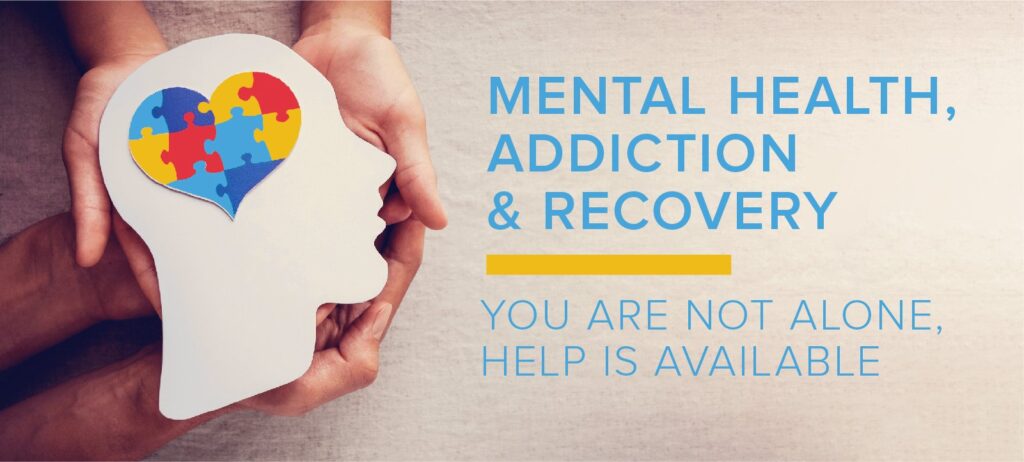Welcome to our blog, where we explore the important topics of mental health and addiction. In this post, we’ll delve into the intricate relationship between these two issues and shed light on how they often intertwine. Understanding this connection is crucial for individuals, families, and communities to provide effective support and care.

The Link Between Mental Health and Addiction:
Mental health and addiction often coexist and influence each other in a complex manner. It’s not uncommon for individuals struggling with mental health challenges to turn to substances or addictive behaviors as a way to cope. Likewise, substance abuse can exacerbate existing mental health conditions or trigger the onset of new ones.
Self-Medication:
Many people with undiagnosed or untreated mental health conditions may unknowingly resort to self-medication through drugs, alcohol, or other addictive behaviors. They might seek temporary relief from symptoms such as anxiety, depression, or overwhelming emotions. However, self-medication only provides short-term relief and can lead to a vicious cycle of addiction and worsening mental health.
Dual Diagnosis:
Dual diagnosis, also known as co-occurring disorders, refers to the presence of both a mental health disorder and a substance use disorder. This is a complex situation that requires specialized treatment approaches. Common examples of dual diagnosis include depression and alcoholism, anxiety disorders and prescription drug abuse, or post-traumatic stress disorder (PTSD) and illicit drug use.
Common Underlying Factors:
Both mental health disorders and addiction can share common underlying factors, such as genetic predisposition, childhood trauma, environmental stressors, or imbalances in brain chemistry. Understanding these shared factors can help clinicians and individuals address both issues more effectively.
Treatment and Support:
Addressing mental health and addiction requires a comprehensive and integrated approach. Here are some important considerations:
Professional Help:
Seeking professional help is crucial for managing mental health conditions and addiction. Licensed therapists, counselors, psychiatrists, and addiction specialists can provide assessment, diagnosis, and evidence-based treatments tailored to individual needs.
Dual Diagnosis Treatment:
For individuals with co-occurring disorders, dual diagnosis treatment programs that address both mental health and addiction simultaneously are highly beneficial. These programs typically involve a combination of therapy, medication management, support groups, and holistic approaches.
Support Systems:
Building a strong support system is essential. Surround yourself with understanding and nonjudgmental individuals, such as family, friends, or support groups, who can provide encouragement, empathy, and accountability throughout the recovery journey.
Self-Care:
Practicing self-care is vital for maintaining mental well-being and preventing relapse. Engage in activities that promote relaxation, mindfulness, exercise, healthy eating, and good sleep hygiene.
Conclusion:
Recognizing the intricate relationship between mental health and addiction is crucial for promoting overall well-being and providing effective support. By raising awareness, offering compassionate understanding, and seeking professional help, we can make significant strides in breaking the stigma surrounding these issues and empowering individuals on their path to recovery.
